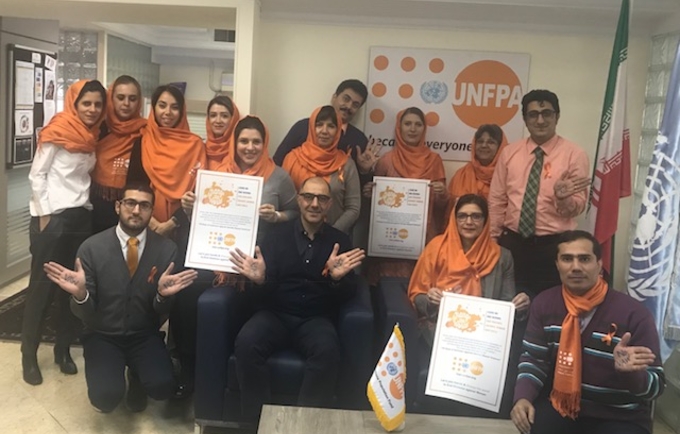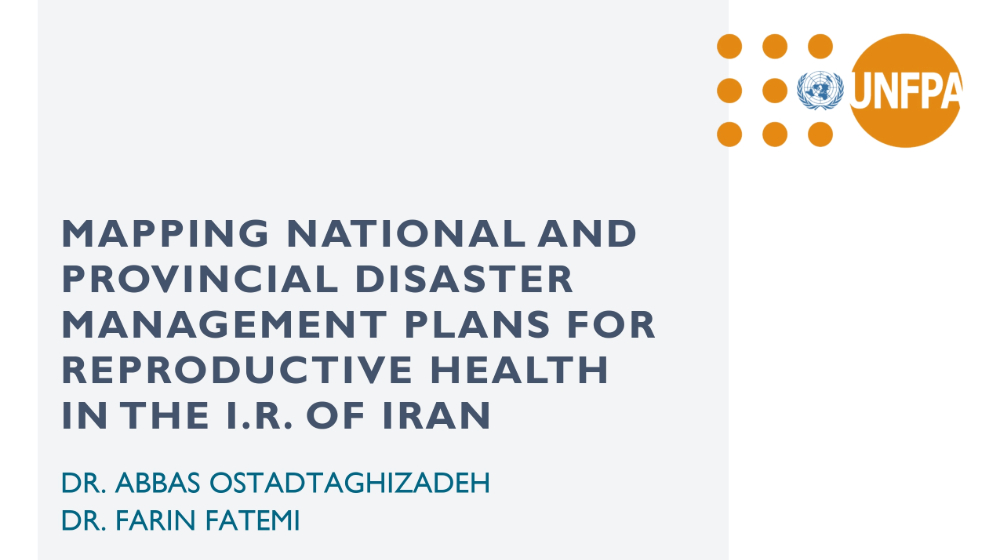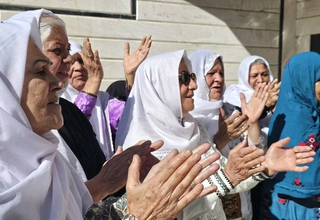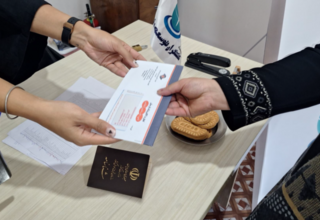Every year, the international organizations launch campaigns on ending gender-based violence during the time between the International Day for the Elimination of Violence against Women (25 November) and Human Rights Day (10 December). This time period is known as the “16 Days of Activism Against Gender-Based Violence.”
UNFPA Iran took the lead within UN agencies and initiated a campaign to sensitized UN staff on the historical background of the 16 days of activism against Gender-Based Violence (GBV) which goes back to 1981, when women activists marked 25 November as a day against violence. This date came from the brutal assassination in 1960, of the three Mirabal sisters, political activists in the Dominican Republic, on orders of Dominican ruler Rafael Trujillo (1930-1961). On 20 December 1993 the General Assembly, by resolution 48/104, adopted the Declaration on the Elimination of Violence against Women. In this context, in 1999 the United Nations General Assembly designated 25 November as the International Day for the Elimination of Violence against Women, and invited governments, international organizations and NGOs to organize on that day activities designed to raise public awareness of the problem.
The period between 25th November and 10 December symbolizes the activism against gender-based violence. Human Rights Day is observed every year on 10 December – the day the United Nations General Assembly adopted, in 1948, the Universal Declaration of Human Rights. The Universal Declaration of Human Rights empowers us all. The principles enshrined in the Declaration are as relevant today as they were in 1948.
Posters and quotes were prepared and circulated by email and in prints to all 365 UN staff to gear up the momentum among staff by highlighting that violence against women and girls is one of the most widespread, persistent and devastating human rights violations in our world today. Special emphasize was made on the theme of the campaign for 2017 is “Leave no one behind: end violence against women and girls" reinforcing the Campaign’s commitment to a world free from violence for all women and girls around the world, while reaching the most undeserved and marginalized, including refugees, migrants, minorities, indigenous peoples, and populations affected by conflict and natural disasters, among others, first.
UNFPA Country Office prepared and distributed orange ribbons for all staff as a symbol of solidarity during the campaign period. While preparing UN agencies packs for the campaign, Mr. Reza Kamkar, UNFPA noted: “I have been working for UN Iran for 12 years and never knew about 16 days of activism. Helping making orange ribbons feel good.”

UNFPA invited all UN staff to “Orange the world,” using the color designated to symbolize a brighter future without violence and go an extra miles by spreading the vibes about the 16 Days of Activism among families and friends. UN Representatives were called to request staff take part of the campaign and to submit their group photos.
UNHABITAT, UNICEF, FAO, UNESCO, UNHCR, and Office of Resident Coordinator shared their group pictures wearing the orange ribbons. Mr. Sivanka Dhanapala, UNHCR Representative shared a group photo and said: "We discussed domestic violence among Afghan refugees; we went orange with the team and local authorities in Isfahan."
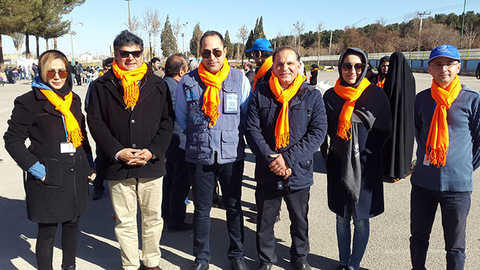
Gender Specialist of UNFPA Iran, Dr. Monire Bassir also conducted orientation sessions for staff of some agencies on the campaign in general with special focus on this year’s theme “leaving no one behind” including UNFPA’s global mandate to end GBV.
Daily post and pictures of the 16th days of activism campaign against gender-based violence prepared earlier by UNFPA HQ was posted on the country office instagram with Persian translation to raise awareness among a wider audience.
1 out of every 3 women experiences some sort of violence during their life time.
